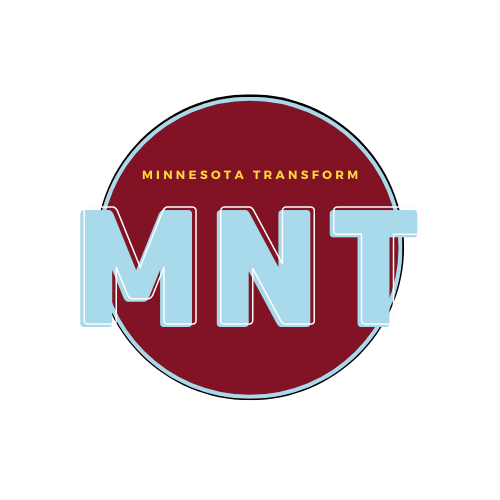
Photo of exhibition. Photography credits: Morgan Sheff
About the project
Freeway construction destroyed and divided Black communities across the United States, amplifying the effects of systemic racism that are still felt today. With photographs, maps, oral histories and archival documents, Human Toll: A Public History of 35W explores community resistance and resilience in South Minneapolis. The exhibit was researched and developed over two years by a team of South Minneapolis community members working closely with Heritage Studies and Public History (HSPH) master’s students Jessica Carter and Jacob Noble, HSPH graduate Denise Pike, HSPH faculty member Greg Donofrio, and Dr. Ernest Lloyd, former Director and Assistant to the Commissioner for Civil Rights at the Minnesota Department of Transportation.
The exhibit documents and raises awareness of the disparate impact of freeways on low-income residents and communities of color, who are exposed to multiple forms of pollution, and for whom 35W is seen as a racial and economic dividing line in Minneapolis. The project hosted several public events this past year including a panel discussion about freeways and environmental justice that brought together MnDOT, members of the Rondo community in St. Paul, and a medical doctor who discussed the latest public health research on this topic.
Zoom Recordings of Events and Public Programs
Southside Elders African-American elders share stories of life before and after 35W.
A moderated conversation about how people in the Rondo neighborhood of St. Paul are responding to social and environmental justice questions raised by freeway alignment projects in the past.
A moderated conversation about how residents of South Minneapolis resisted and opposed the plans to expand 35W.
A discussion about the history of organizing and activism to pass “Open Housing” laws in Minnesota and the Twin Cities.
A discussion about efforts to integrate South Minneapolis in the 1950s and 1960s with a focus on open housing, school pairing, and disamenities.
Discussion on the history of housing segregation with a focus on racial covenants, zoning and redlining, and white violence.
Presenters from A Public History of 35W share preliminary histories about opposition to the freeway, its impacts on communities of color, and concerns over equity and environmental justice in order to seek community perspectives.
Features in local and national publications
“A Public History of 35W” and its Human Toll exhibition have been featured widely in Minnesota news sources and beyond including: The Spokesman-Recorder (here and here)
Center for Transportation Studies Newsletter
Twin Cities Public Television show Almanac
Partners and collaborators
Collaborators: Heidi Adelsman, Bruce Bruemmer, Jessica Carter (Developmental Curator), Greg Donofrio, Kas Filbert, Jenean Gilmer, Eric Hankin-Redmon, Sophie Hunt, Ernest Lloyd, Tyler McDaniel, Jacob Noble (Developmental Curator), Denise Pike, Sydney Shea, Alyssa Thiede
Organizational Partners: Mapping Prejudice, Move Minnesota, Hennepin History Museum, Minnesota Department of Transportation, and the Bell Museum of Natural History.
Community Advisors: Cindy Booker, Stearline Jenkins-Rucker
Oral History Participants: Sharon Sayles Belton, Scott Benson, Patty Connelly, Scott Dibble, Jessie Hill, Robert Lilligren, Louis Moore, Anthony Scott, Courtney Taylor, Greg Taylor
Photography credits: Morgan Sheff


